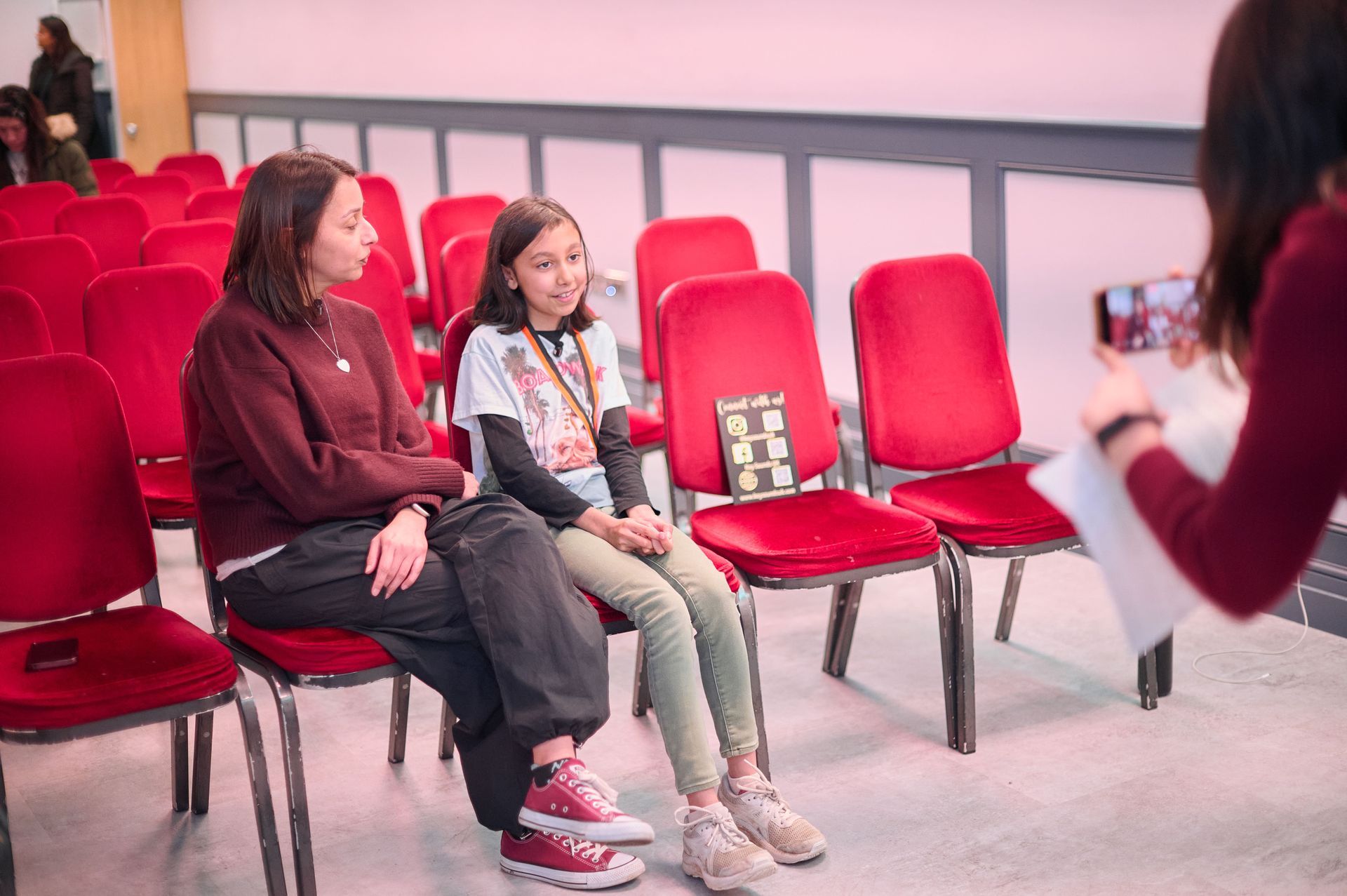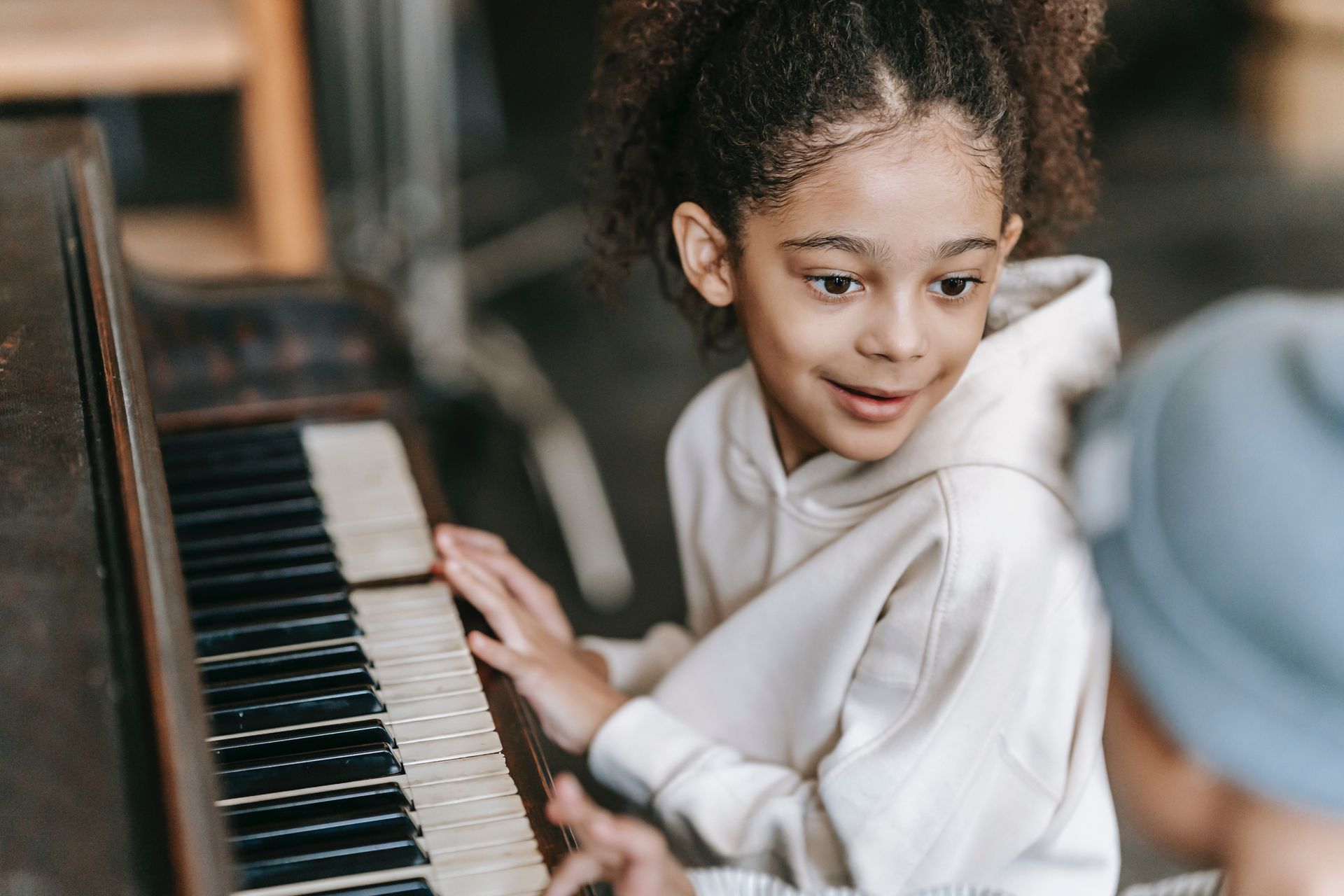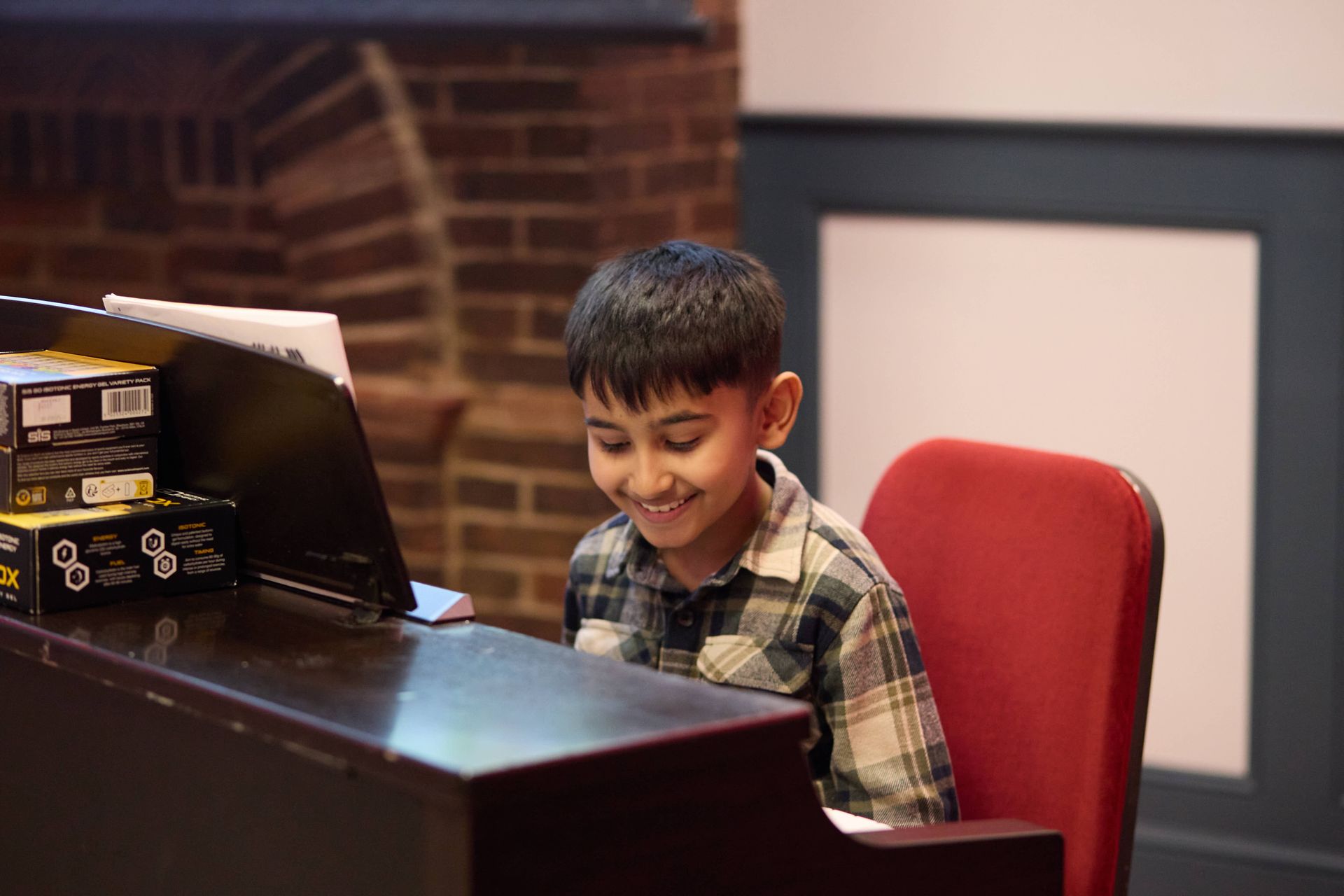How Developmental Stages Shape Piano Progress
Children don’t just grow physically - their attention span, emotional awareness, and confidence evolve too. As they move through different ages and stages, their piano learning naturally shifts. Understanding these changes helps you support their musical journey in a way that feels positive and achievable for everyone.
- Developmental Stages
Young children (5-7 years)
They learn through play, repetition, and imagination. Short bursts of focus are completely normal, and their progress often shows up in tiny steps that suddenly click all at once.
Older children (8-11 years)
They begin to take pride in independence and want to understand why things work. They can handle longer pieces and more complex rhythms.
Pre-teens & teens
This stage can be full of emotions, self-criticism, and identity-building. Music can become an expressive outlet and sometimes a place where perfectionism shows up.
How you can help
● Adjust practice expectations as your child matures.
● Celebrate growth over speed.
● Be patient with the natural ups and downs.
And remember: If you’re unsure what’s appropriate for their age, feel free to reach out to us we’re always happy to guide you.
2. Balancing Piano With Academic Pressures
Schoolwork grows heavier as children get older, and it’s normal for motivation to shift during busy periods. Practice may not look the same during exam weeks and that’s completely okay. Supportive strategies:
● Keep practice short and focused when schedules are tight.
● Create a weekly routine that includes music, even in small doses.
● Let your teacher know when school gets especially intense.
We can always adjust lesson content, repertoire, or expectations when we know what your child is juggling. You’re welcome to reach out anytime.
3. Supporting Emotional Ups and Downs
Piano challenges students in ways that build resilience but frustration sometimes comes with the process.
What helps:
● Validate their feelings (“That part is tricky!”).
● Celebrate their small wins children thrive on noticing their own progress.
● Introduce a “proud moment of the week” ritual.
If emotional blocks persist, message us or mention it in lessons. Sometimes one small adjustment from the teacher can make a big difference.
4. Keeping Piano Fun and Personally Meaningful
Children stay engaged when they connect with their music.
Try adding:
● A piece they choose each term
● Music from films, games, or artists they love
● Creative tasks like composing or improvising
● Duets with siblings or parents
If you’re ever unsure what repertoire would excite your child, ask us if we're happy to personalise suggestions.
5. Stay Connected With Your Teacher
Piano progress is a partnership. As your child grows, their needs change and we’re here to support every stage.
You can:
● Check in with us once a term
● Reach out between lessons with small questions
● Let us know about school stress, emotions, or changes at home



